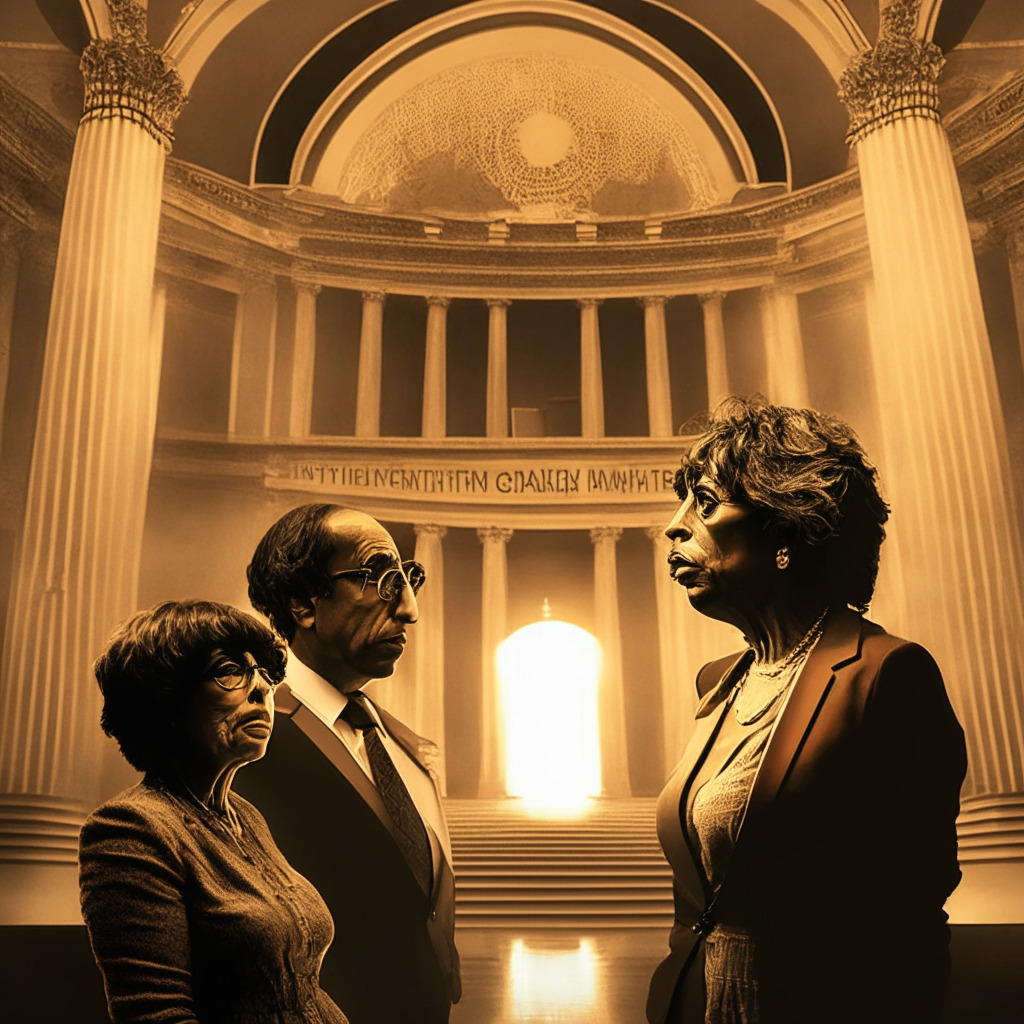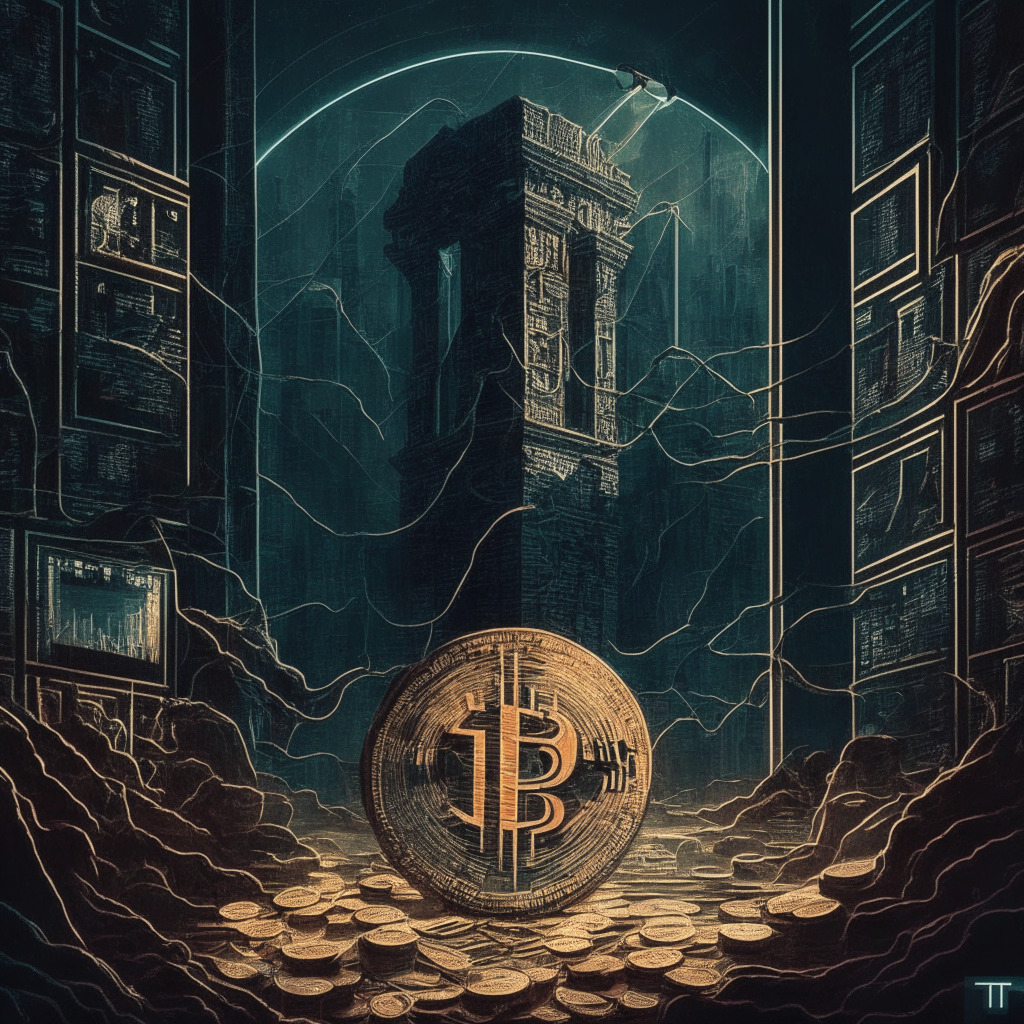Prominent crypto investment firm Paradigm resists recent actions by the US Securities and Exchange Commission (SEC) challenging its authority to regulate secondary markets for crypto assets. Increased regulatory action, extending now to exchanges operational in secondary markets, indicates an expansion of SEC’s authority. Paradigm criticizes this as inconsistent regulation, potentially damping the entrepreneurial spirit of crypto exchanges.
Search Results for: gary gensler
Navigating Cryptocurrency Regulation: Upcoming Legislative Proposal by US Senators Lummis and Gillibrand
US Senators Cynthia Lummis and Kirsten Gillibrand are to propose a new legislation known as the ‘Responsible Financial Innovation Act’, aimed at regulating cryptocurrencies and digital assets. The bill plans to classify most cryptocurrencies as commodities and enforce crypto exchanges to store consumer assets in third-party trusts, enhancing security. Critics argue it may also create unintended consequences.
SEC’s Dubious Stance on Bitcoin Spot ETFs: Ripple Lawyer’s Critique & Market Predictions
“Bitcoin experiences a slight uptick with the SEC’s approval of Grayscale’s Bitcoin Futures ETF. However, concerns linger over spot Bitcoin ETFs. The SEC’s decision, current market accessibility and mainstream acceptance of Bitcoin prompt optimism for potential regulatory approval for Spot ETFs.”
The SEC’s Joust with Crypto: Regulatory Overreach or Necessary Oversight?
“Paradigm’s Special Counsel Rodrigo Seira criticizes the SEC’s recent actions against secondary crypto markets and U.S.-based crypto exchange Bittrex as overstepping jurisdiction. Seira argues crypto-assets do not fall under the SEC’s purview, highlighting the need for clearer regulatory framework.”
Unraveling the Prometheum Probe: A Case of Cryptocurrency, Regulation, and Transparency
U.S. Senator Thomas Tuberville has urged an investigation into special-purpose broker, Prometheum, which recently got federal permissions to offer crypto trading. The probe stems from the suspicion that Prometheum may have violated U.S. securities laws or provided dubious testimony to Congress, hence affecting investor protection and legislative process integrity.
Debate on Future of Crypto Regulations: Mark Cuban vs. SEC and the Confidence in Bitcoin’s Future
Mark Cuban and an ex-SEC official have weighed in on the future of cryptocurrency regulation amidst ongoing shifts in the industry. Cuban is critical of the SEC’s current approach, advocating for potential regulations including dedicated registration processes for cryptocurrencies. Contrastingly, ex-SEC official John Reed Stark criticizes Central Bank Digital Currencies for potential global financial risk, cybersecurity issues, and possible conflicts.
Rollercoaster Week for XRP: AI-Generated Rumors, Potential Rally Signals, and Diversification Strategies
Despite recent stagnation, XRP shows signs of potential momentum increase, with key indicators hinting an imminent rally. Traders, however, might need patience as definite court decision on Ripple’s SEC case could take months. Meanwhile, opportunities in other altcoins like THUG could provide short-term gains.
Resilience Amidst Regulation: Bitcoin’s Impressive Rally and Altcoins’ Regulatory Headwinds
“Bitcoin has demonstrated resilience amidst regulatory uncertainty, surging 86.31% YTD, even as altcoins suffer under SEC pressures. Further, the impending launch of EDX, a new digital asset exchange backed by leading Wall Street firms, signals unique opportunities for Bitcoin’s future market health.”
Untangling the Crypto Regulatory Web: A Tale of Overzealous Oversight vs Healthy Balance
“Anthony Scaramucci criticizes former FTX head, Sam Bankman-Fried, whose actions allegedly led to a regulatory crackdown on cryptocurrency. He suggests current regulations gravitate towards ‘prosecutorial oversight’, hindering innovation. He praises Canada’s approach, involving industry players in forming guidelines, and calls for increased transparency.”
Grayscale vs SEC: The Battle for Bitcoin ETF Approval and Its Impact on Crypto Market
The Grayscale Bitcoin Trust (GBTC) experiences a surge in trading volume amid increasing attention towards Bitcoin ETFs. Experts suggest that the SEC may soon approve Grayscale’s Bitcoin ETF application. Grayscale currently has a 70% chance of winning their lawsuit against the SEC, potentially forcing ETF approval by August 2023.
Digital Asset Market Structure: A Path for Crypto Regulation or Hindrance to SEC’s Authority?
House Financial Services Committee Chair Maxine Waters proposed the Digital Asset Market Structure bill, offering US-based digital asset exchanges a pathway for SEC registration, seeking regulatory clarity for the crypto industry. The legislation aims to approve digital securities, commodities, and stablecoins for trading while providing guidelines to distinguish between crypto-based securities and commodities.
Digital Asset Market Structure Bill: Innovation Boost or Regulatory Threat?
US lawmakers introduced the “Digital Asset Market Structure” bill, proposing a comprehensive framework for digital assets. California Rep. Maxine Waters seeks feedback on the bill’s potential impact on the regulatory landscape and investor protection, highlighting the importance of balancing innovation and investor security.
Bipartisan Support: The Key to Unlocking Crypto Legislation on Capitol Hill
This article discusses the current market structure discussion draft for crypto legislation, proposed by House Republican Committee leaders Patrick McHenry and Glenn Thompson. While it faces political challenges, it could serve as a foundation for future bipartisan crypto regulation.
Bitcoin ETF Optimism & Binance Withdrawal Woes: Unfolding Crypto Drama and Future Challenges
The “Great Accumulation” of Bitcoin is underway, potentially boosted by investment giants applying for a Bitcoin spot ETF. Meanwhile, Binance.US faces withdrawal issues, the UK makes progress with crypto adoption, and regulatory stances on stablecoins remain divided. The Atomic Wallet hack also highlights ongoing security concerns in the cryptosphere.
First Leveraged BTC Futures ETF: A Milestone or Cause for Concern?
Volatility Shares Trust filed with the SEC for a leveraged Bitcoin futures ETF under the ticker symbol BITX. If approved, this would be the first leveraged BTC futures ETF in the United States, marking a significant milestone in the cryptocurrency market. However, the SEC has historically shown hesitancy in approving such products due to investor safety and market manipulation concerns.
Leveraged Bitcoin ETF Approval: Game Changer or Gateway to Financial Pitfalls?
The SEC has approved the first leveraged Bitcoin futures ETF, Volatility Shares 2x Bitcoin Strategy ETF (BITX), set to launch on the CBOE BZX Exchange. This milestone brings optimism to the crypto world, despite lingering doubts and questions about the SEC’s stance on digital assets.
Bitcoin Spot ETFs: Analyzing Hopes, Challenges, and Institutional Involvement
The likelihood of a Bitcoin spot ETF in the US remains low despite BlackRock’s application, according to QCP Capital. The SEC has rejected all spot ETF applications so far, and skepticism over approval continues under current SEC leadership. However, institutional interest in BTC and ETH remains strong, with Grayscale Bitcoin Trust showing remarkable recovery.
Major Financial Firms Enter Crypto Market: Boon or Bane for Decentralization and Innovation?
The crypto market experiences a long-term ripple effect as major financial firms like BlackRock, Invesco, Fidelity Investments, WisdomTree, and Valkyrie Funds enter the digital assets market. Skeptics worry their involvement could increase regulation, potentially hindering innovation and the decentralized spirit valued in the crypto community.
SEC Under Fire for Handling of FTX CEO Case: The Struggle for Transparency and Crypto Regulation
The US House Oversight and Investigations Subcommittee, led by Rep. Bill Huizenga, has criticized the SEC for insufficient information on former FTX CEO Sam Bankman-Fried’s charges and arrest. This raises questions about regulation in the emerging cryptocurrency industry, stirring debates between proponents of stricter regulation and supporters of blockchain technology and markets.
SEC vs Ripple Lawsuit: Unpredictable Outcome and Divergent Crypto Community Opinions
The Ripple vs SEC lawsuit reveals contrasting opinions within the crypto community, reflecting the unpredictable outcome of the case. As the verdict approaches, pro- and anti-XRP factions express their views, challenging investors navigating current market conditions. Conduct thorough research before committing to cryptocurrency investments.
SEC Crackdown on DeFi and Stablecoins: Analyzing Pros, Cons, and Market Implications
The SEC is potentially targeting decentralized finance (DeFi) and stablecoins, including Tether (USDT) and USD Coin (USDC), in its enforcement crackdown, according to a Berenberg report. Stablecoins, essential to the DeFi ecosystem, have raised national security concerns due to weak sanctions and money laundering controls. The SEC aims to weaken DeFi’s capacity to rival regulated exchanges and lenders.
Binance CEO Backs New Exchange EDX: Boon or Threat to Crypto Decentralization?
Binance CEO CZ supports new cryptocurrency exchange EDX, backed by prominent financial institutions like Citadel Securities, Fidelity Investments, and Charles Schwab. EDX plans to initially offer trading in Bitcoin, Ethereum, Litecoin, and Bitcoin Cash, while aiming to launch a clearinghouse later this year.
Wall Street Giants Back EDX Markets: A New Era for Crypto Exchanges and Regulations
The newly launched cryptocurrency exchange, EDX Markets, backed by Wall Street giants Charles Schwab, Citadel Securities, and Fidelity Digital Assets, aims to fuse traditional finance with cryptocurrency while emphasizing compliance. The venture represents a significant milestone in addressing regulatory concerns and encouraging adoption within the traditional financial industry.
68 Blockchain Tokens Classified as Securities: Implications for Users and Exchanges
The SEC has identified 68 blockchain tokens, including Solana’s SOL and Cardano’s ADA, as securities, affecting over $100 billion assets. The classification raises questions on users’ access and potential regulatory constraints on centralized exchanges, while highlighting the challenge in balancing regulations and blockchain technology’s open nature.
GBTC Share Surge: ETF Conversion Hopes, Redemption Possibilities, and Ongoing SEC Conflict
GBTC’s share price soared past $16, fueled by hopes of its conversion into a Bitcoin ETF. Investor optimism was driven by redemption possibilities and Grayscale’s chances of winning an ongoing lawsuit against the SEC. Rumors of Fidelity filing for a spot BTC ETF further fueled optimism in the cryptocurrency space among traditional investment management firms.
SEC Crackdown on Crypto Exchanges: Hindrance to Innovation or Necessary Oversight?
Former CFTC Chairman Christopher Giancarlo and crypto advocate Jim Harper discuss the SEC’s recent crackdown on Coinbase Exchange, highlighting the need for regulatory clarity in the U.S. crypto industry. The pursuit of a positive regulatory environment is crucial in propelling the market forward and fostering innovation.
Major Questions Doctrine: A Relief for Crypto in SEC Lawsuits? Pros, Cons & Conflicts
The major questions doctrine, which requires explicit congressional approval for regulating areas of significant importance, may provide relief for Binance and Coinbase amidst SEC scrutiny. This legal aspect could potentially challenge the Chevron doctrine, which grants regulatory agencies broad discretion, and promote regulatory clarity for the cryptocurrency industry.
End of Non-Securities Crypto Trading: Legal Implications & Future Adaptions
The era of trading cryptocurrencies as non-securities may be ending, says Itai Avneri, COO at INX. With legal implications affecting exchanges, a focus on categorizing cryptocurrencies within the financial landscape is crucial for compliance with regulatory guidelines and balancing innovation with financial security.
Bitcoin Regains 50% Market Dominance: Boon or Bane for Altcoins?
Bitcoin’s market dominance reaches 50% for the first time in two years, accounting for half of the total $1.1 trillion market capitalization. This surge is driven by investors seeking a safe haven amid mounting regulatory scrutiny and the FTX crisis. The future of other cryptocurrencies appears uncertain, while Bitcoin’s adoption and dominance solidify its position as the leading digital currency.
Bitcoin Dominance Surges: Impact on Altcoins and Future of Crypto Market
Bitcoin’s market cap surpasses all other cryptocurrencies combined, reaching over 50% dominance, a level unseen since May 2021. Factors include regulatory scrutiny on altcoins, SEC lawsuits, and increased Bitcoin adoption driven by institutional investors and clearer regulations.
BlackRock, Grayscale, and the Battle for a Bitcoin ETF: Regulatory Hurdles Impacting Adoption
BlackRock’s application for a Bitcoin ETF with the SEC boosts investor sentiment, increasing Grayscale’s Bitcoin Trust share prices. The approval of a Bitcoin ETF could bridge the gap between crypto and traditional financial markets, influencing wider cryptocurrency adoption.































